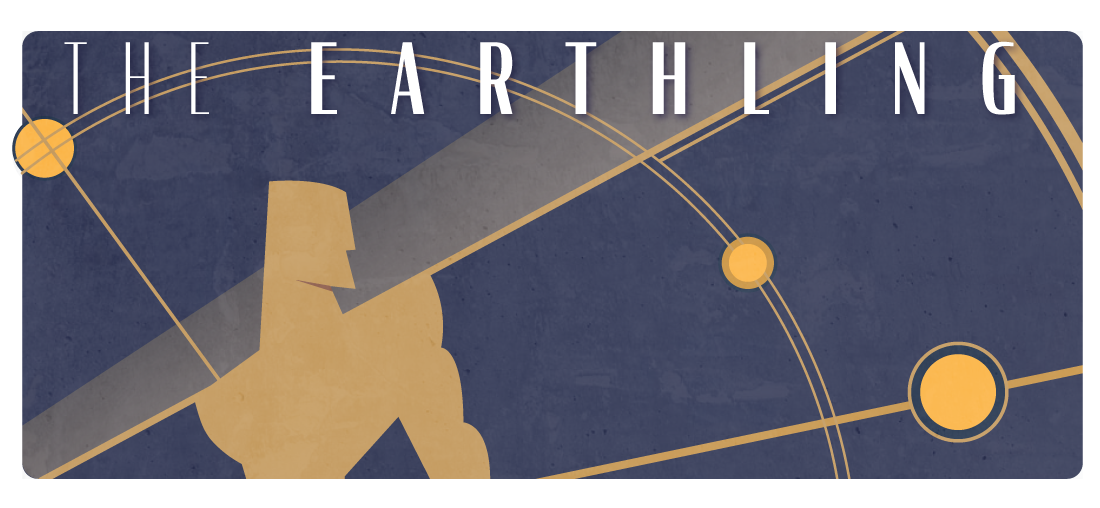Earthling: Is Biden turning Iran into Russia?
Plus: Chicken-friendly AI; CIA uncloaked in Ukraine; Does pessimism lead to war?; etc.
Russia is to NATO as Iran is to what? The Biden administration may be trying to create an answer to that question—and this has some people worried.
According to a piece in Sunday’s Wall Street Journal, in March the US held a secret meeting with Israeli and Arab military officials to discuss coordination against the threat their nations see emanating from Iran. Present at the gathering in Sharm El Sheikh, Egypt were officials from Israel, Saudi Arabia, Qatar, Egypt, Jordan, the United Arab Emirates, Bahrain, and the US.
Until recently military cooperation among these nations would have been unthinkable, largely because of Arab-Israel tensions. Among the reasons for the change: shared fears of Iran and the desire of Arab states to acquire Israeli defense technology as the US, their traditional patron, shifts its focus from the Middle East to China and Russia.
Trita Parsi of the Quincy Institute, in an interview with Jacobin, criticized Biden’s “effort to create an Israeli-Arab-American NATO in the Persian Gulf.” Parsi suggests that Biden has unwisely prioritized this initiative over restoring the Iran nuclear deal that Trump exited in 2018. “Instead of going for an arms control agreement,” Parsi says, Biden and Middle Eastern leaders are pursuing “an arms agreement in which they’re going to be increasing military spending, arms sales, and military collaboration between these different countries targeting Iran.”
Parsi recommends, in addition to restoring the Iran deal, building a security framework that encompasses all nations in the Middle East rather than one that excludes and threatens Iran.
Of course, if Biden wanted to get really ambitious, he could go further and work toward a nuclear-free Middle East. In this scenario, the reassuringly intrusive monitoring and inspections regime that Iran was subject to under the nuclear deal could be applied to other countries in the neighborhood as well.
Granted, Israel wouldn’t like the idea of giving up its nukes (even though giving them up would weaken the rationale for Iran, and hence its Arab adversaries, to pursue nuclear weapons, and even though all these states would now be more transparent). And, historically, Israel has been pretty effective in convincing the US not to pursue ideas Israel doesn’t like. But an Earthling can dream…
The war in Ukraine may have an unexpected casualty. The fight against climate change has suffered amid the rush to replace sanctioned Russian oil and gas, write Katrin Bennhold and Jim Tankersley in the New York Times. Following a spike in energy costs, western leaders are looking to bring shuttered coal plants back online, build infrastructure for liquefied natural gas, and in other ways increase the extraction of fossil fuels, threatening climate goals agreed to just last year.
Meanwhile, in a 6-3 ruling, the Supreme Court reduced the power of the Environmental Protection Agency to limit carbon emissions, likely thwarting Biden’s pledge to make the US the world leader on climate change. The UN called the decision “a setback in our fight against climate change” but added that no single country could inhibit the global effort.
To protect Finland and Sweden, keep them out of NATO. So argues military analyst Daniel Davis in an op-ed for NBC News.
As NATO leaders meeting in Madrid paved the way for Finnish and Swedish membership, Davis contended that the two Nordic nations may live to regret the move. “Up to now, if a war ever broke out between NATO and Russia, both Finland and Sweden would have been protected by their neutral status.” But once they are NATO allies, such a conflict would threaten both nations’ security, since “the Kremlin would almost certainly attack airfields and ports in both countries to prevent other allies from using their facilities to stage attacks against Russia.”
In addition, Davis believes, adding two members could “increase the risk of future conflict for the entire alliance” by adding “two more triggers for Article 5”—the part of the NATO charter that says an attack on one is an attack on all.
And, as others have argued, membership in a powerful alliance can embolden small nations to take provocative actions they might not otherwise take. Lithuania’s potentially incendiary recent restriction on commerce entering the Russian exclave of Kaliningrad has been cited as an example.
Granted, artificial intelligence may eventually condemn humans to a life of oppression under robot overlords. But look at the bright side: AI can meanwhile improve the lives of chickens.
Researchers say new technology can detect distress calls made by chickens with 97 percent accuracy. And the adoption of these tools needn’t depend on the tender-heartedness of farmers; research shows that distressed chickens have low growth rates and high mortality, says Alan McElligott, a professor of animal welfare—so improving their living conditions is a sound investment. This “deep learning” tool could be at work in commercial settings within five years, and can in principle be adapted to other farm animals.








